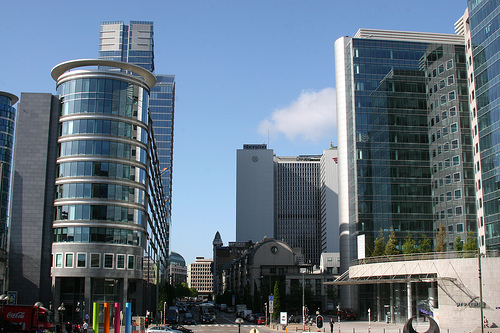Learning the Business Customs of Belgium

In Belgium, you must always be polite, calm, formal and well-mannered when conducting business. Third-party introductions usually go well, but are not necessary. Belgians tend to be hesitant to open up to others, whether they are groups or individuals. They are not very direct when they communicate, as they feel being subtle is a mark of intelligence. Sometimes direct responses go well, but sometimes they are seen as too simplistic and not sophisticated. Being confrontational is also viewed as impolite. Communications should be logical and reasonable, not arbitrary. People are multi-lingual in Belgium, especially in cities, and will be fine with conducting an entire meeting in English.
Doing business in Belgium is infamous for being very bureaucratic. Almost everything involves a good deal of paperwork, so be patient. People also have a habit of conducting very long, drawn-out conversations before coming up with decisions, so that they make sure they have considered all other alternatives.
When arranging meetings, appointments are necessary. They are usually set by the Belgian business people, who will likely schedule it for the middle of the morning or middle of the afternoon. Belgians are often on vacation through July and August, the week before Easter and the week after Christmas, so do not plan on having meetings in those periods. Be punctual, as everyone else probably will be as well; being late is considered sloppy. Meetings are done very formally, and you should not remove your jacket.
Image and dress are important when doing business in Belgium. Men should wear dark, conservative suits, white shirts and ties. Women should wear dark suits or dresses. Shoes are also very important, and should be polished thoroughly. Shoes should also be laced, as slip-ons and loafers look too casual.
As for business cards, they are exchanged without any special gestures. Though Belgians mostly speak English, you should have one side of your card translated into French or Dutch, just to be courteous. Make sure you are aware of what region of Belgium you are doing business in, as they have different native languages, and you do not want to hand people cards in the wrong language. Present the card so that the recipient’s language is facing side up.
